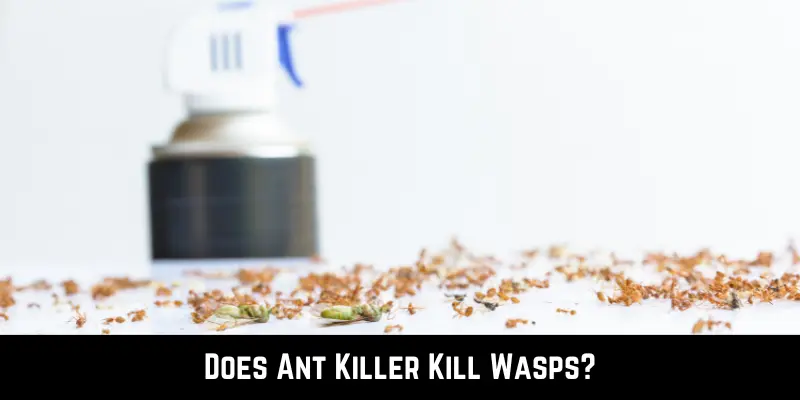Imagine you are enjoying nature in your yard, and suddenly a wasp starts buzzing in your ear. You will flee out of fear, but that’s not the solution. You must exterminate them for good. An insect spray may help you, but does ant killer kill wasps?
Yes, ant killers can kill wasps, but their effectiveness varies depending on their constituents. Moreover, wasps have different body biology and behavior, so these insecticides are not as effective in killing wasps and their nests as insects.
Are you interested in using Ank Killer to kill wasps and want to know how to use them effectively? Read the below details to learn everything about.
Does a Raid Ant-Killer Kill Wasps?
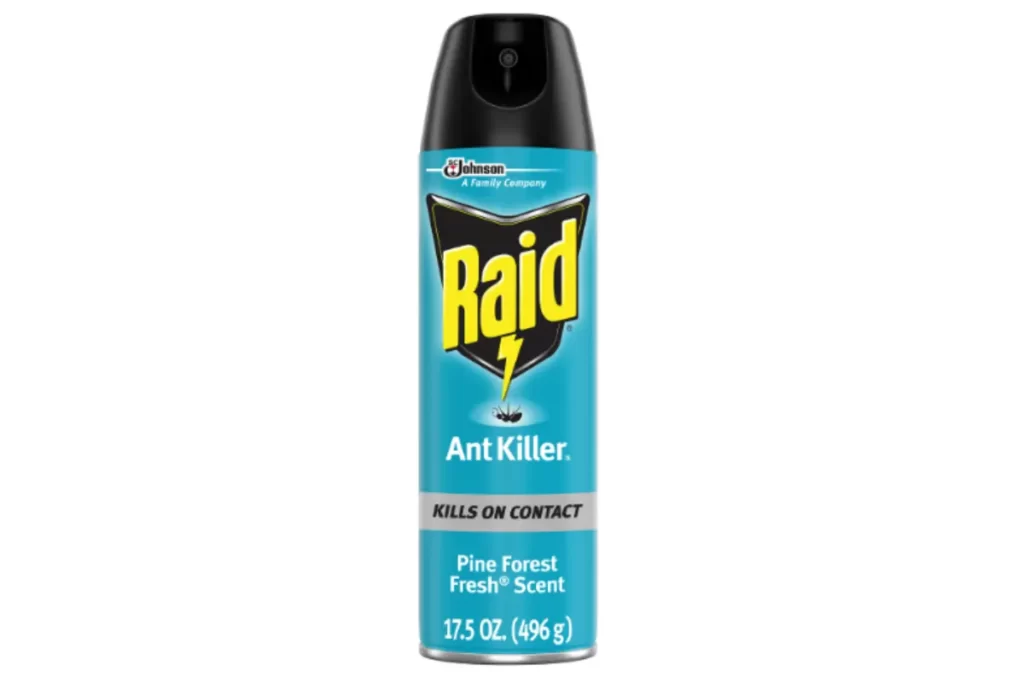
Yes, a raid ant-killer can kill wasps. While it’s effective against various insects, it’s not designed specifically to kill wasps. As the raid ant-killer has a low-pressure, short-range nozzle, you might need to approach closer to a wasp to kill it. The components of Raid Ant Killer resemble those of other wasp killers. However, the sole restriction is the spray’s pressure.
Therefore, it is only efficient if you simply wish to kill one or two wasps. It can be hazardous to use this insecticide in wasp or hive nests. This aerosol pesticide can kill wasps by its lingering action. After using it, wait about 24 hours while it gradually reacts in the hive before moving on to the next step. Moreover, wear safety equipment before applying the insecticide, as well.
Does Terro Kill Wasps?
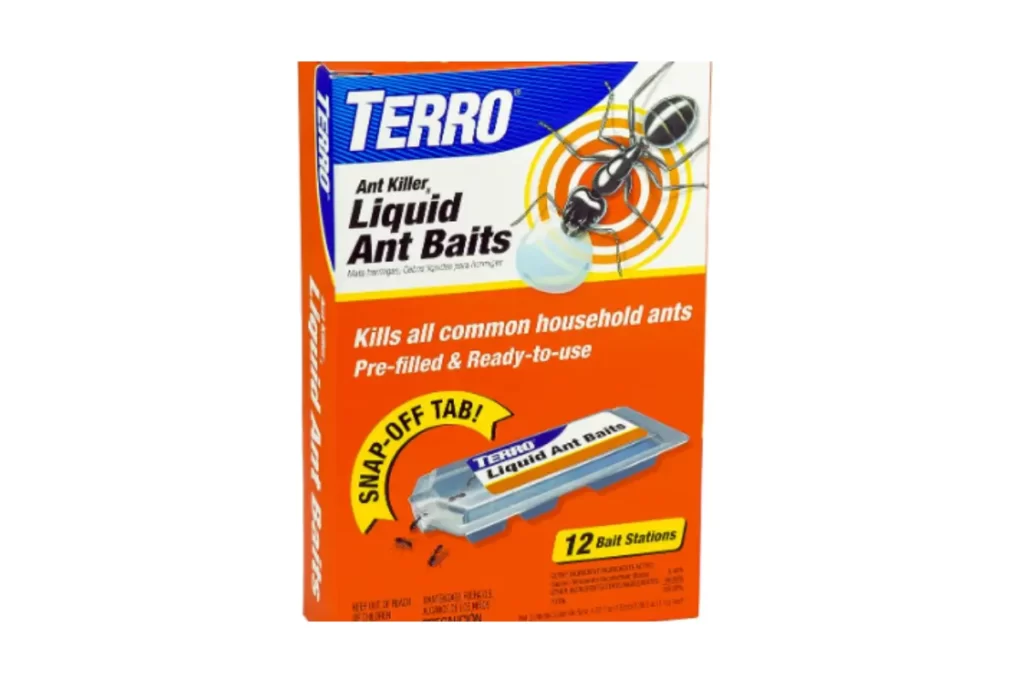
Yes, Terro wasp and hornet spray is very effective in killing wasps. It is a foam spray that wraps wasp nests to completely entrap them to death. Not only does the entrapping foam kill the wasps and hornets inside the nest, but it also stays on the nest and kills any unwary insects that have the misfortune of coming back.
You’ll enjoy that this wasp and hornet aerosol spray produces a potent jet spray that may reach up to 20 feet because nests are frequently present in challenging-to-access locations. Additionally, it enables you to spray safely away from the nest. Always spray nests around dawn or dusk, when insects are least active, to treat them.
Furthermore, avoid standing directly beneath the nest; instead, keep a safe distance away from it. Spray Terro until it fills the nest’s hole. After that, spray the remainder of the nest. The insects will drop to the ground and perish. Allow up to 24 hours to pass after spraying before removing the nest.
How Does Raid Kill a Wasp?
Raid is a form of insecticide used to kill various insects, including wasps. It contains the active compounds prallethrin and cypermethrin, which enter a wasp’s nervous system and interfere with its regular functioning, killing it instantaneously.
The spray’s pyrethrum ingredients will bond with sodium channels in the wasp’s neurons and inhibit all muscle function. The wasp dies within seconds after all muscular activity stops, the heart stops beating, and the respiration stops.
Raid killer is poisonous to practically all insects and pests. The duration it takes for the insect to sustain the most harm is the only variation.
Raid killer eliminates smaller bugs more quickly than larger ones. If you are using raid pesticides, always keep in mind to destroy the nest to stop wasps from reuniting later. Furthermore, to prevent any future wasp activity, you can even spray Raid on the area where wasps once resided.
How to Employ Raid to Kill Wasps?
The best time to kill wasps with Raid is to spray it on the wasp’s nest at sunrise or sunset. However, keep in mind that wasps might become hostile if their nests are disturbed. Always check for safety before starting a task. Put on protective clothing, such as gloves and a mask. Follow the below steps to employ raid safely:
- Firstly, find the center of the wasp’s nest.
- Maintain a safe distance from the wasp’s nest.
- Smash the raid spray.
- Opt for a windward angle.
- Spray longer bursts downwind while aiming at the nest’s center.
- As soon as you leave, fully wash your hands.
- Remember to return the following morning to destroy the nest and remove the deceased wasps.
How Long Does Raid Take to Kill a Wasp?
Although the time it takes for a raid to kill a wasp varies depending on several factors, including the type and size of the wasp, it usually takes almost 15 minutes for a raid to kill a wasp. However, you must take all required safety measures to reduce insecticide diffusion.
If you’re outside, try spraying for 15 to 20 minutes, depending on how big the nest is. After using the raid killer, quickly depart the area and allow the pesticide to do its magic. The raid killer can last for more than two weeks and is very effective in killing wasps that return to the nest.
Additionally, if you are using a raid killer indoors, clean the area right away with soap and water to get rid of any leftovers and prevent contaminating food.
Can Raid Wasp Hornet Killer Kill Wasps?
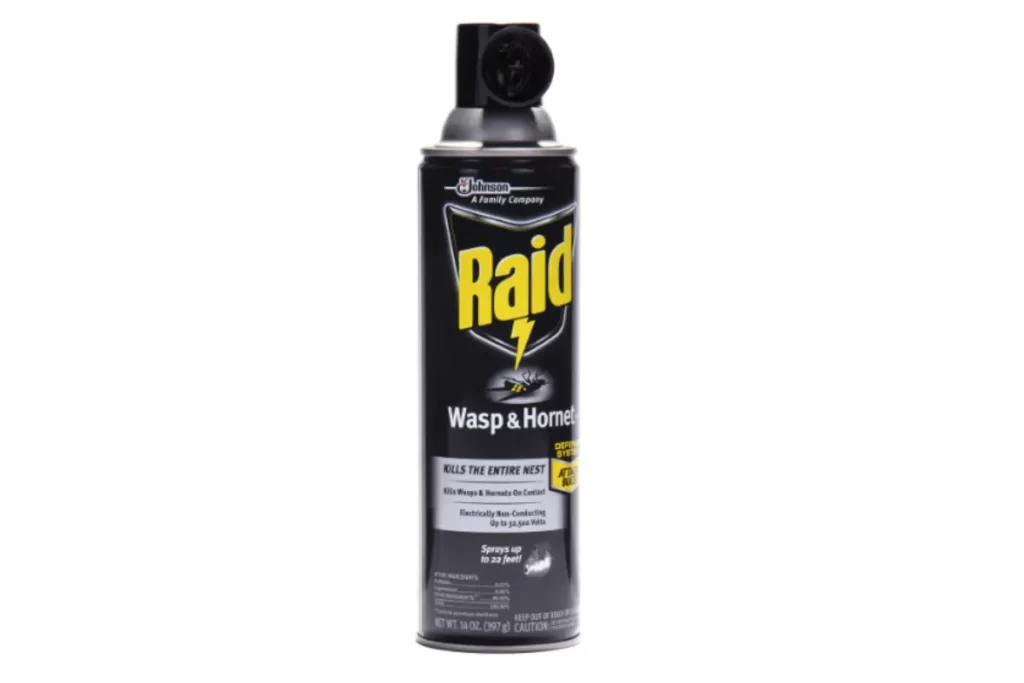
Yes, raid wasp hornet killers can kill wasps instantly. It is made with strong pesticides that work well against these stinging insects. You can use Raid both indoors and outdoors which emits chemicals that neutralize pyrethrins and pyrethroids in the atmosphere. Moreover, it has no unpleasant chemical odor and is electrically non-conducting up to 32500v.
In addition, Raid comes in two sizes: 17.5 oz and 14 oz. For rapid results, spray Raid up to 22 feet away in hives or wasp-prone places like fissures in the walls or ceiling. It not only kills the wasps but also the entire nest. The best time to use Raid is to spray it on a wasp nest either in the early morning or late evening.
Before removing the wasp nest, spray the entire structure with chemicals and let them disintegrate in the air for around 24 hours. Remember to avoid wasting the spray, splash the raid directly on the nest and in the opposite direction of the wind. Sprinkle the area liberally, then leave it alone for 24 hours.
Can Raid Fly Insect Killer Kill Wasps?
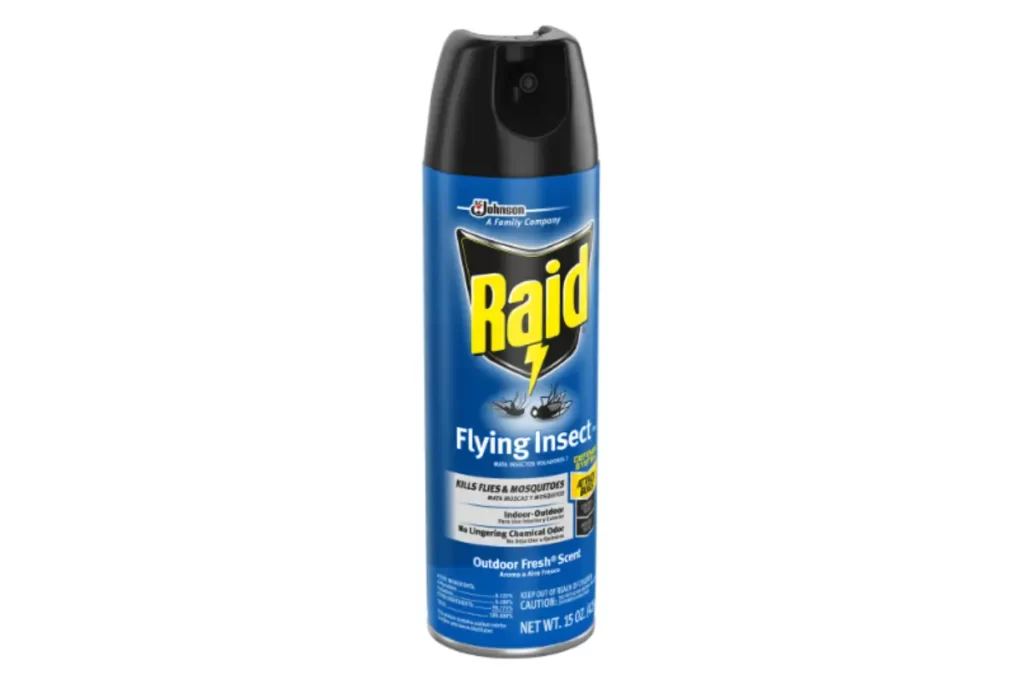
Yes, raid fly insect killer is an effective indoor and outdoor insect killer, including wasps. It can kill wasps instantly if you use it properly. However, while utilizing raid flying insects, make sure you are at least 3 feet away.
Raid flying insect killer has simple-to-use, fast-acting formulations. However, you must remember not to employ it while positioned immediately beneath the wasp nest.
Point the nozzle straight towards the nest while maintaining a safe distance. To destroy the wasp nest, aim, spray, and then wait. This commercial insecticide not only kills wasps but also has a pleasant scent and leaves the environment feeling clean.
Wherever you may have seen wasp activity, whether it be outside, in the attic, or the basement, you can utilize raid flying insects.
What Are the Ingredients of Wasps and Ant Spray?
The ingredients in wasp and ant sprays can vary depending on the brand and formulation, therefore, you must read the label for detailed information. However, the majority of insecticides used to kill ants and wasps often combine active and inactive chemicals.
Common ingredients found in these sprays include:
Pyrethrin:
Pyrethrin is a naturally occurring insecticide made from chrysanthemum flowers. It is commonly utilized in numerous insect deterrent and control solutions, including sprays for wasps and ants.
It operates on insects by making contact with them. Spraying it on a wasp causes instant damage to its neurological system, leading to paralysis and ultimately death.
Prallethrin:
It is a member of the pyrethroid chemical class, which includes synthetic analogs of pyrethrins. Prallethrin functions as a neurotoxin to damage the neurological systems of wasps and ants when employed in insecticide sprays, causing paralysis and death.
It works well against several flying and crawling insects, including mosquitoes, ants, wasps, and other annoyances.
Cypermethrin
It is a synthetic pyrethroid insecticide that is frequently used to manage a variety of pests, such as wasps and ants. Cypermethrin affects an insect’s neurological system, causing paralysis and death.
It’s crucial to carefully follow the manufacturer’s recommendations when using a cypermethrin-containing product to manage wasps or ants.
What Are Pyrethrin and Pyrethroid Spray?
Both pyrethrin and pyrethroid sprays are insecticides derived from chrysanthemum flowers. They are frequently employed to manage several pests, such as ants, flies, mosquitoes, and other household pests.
Pyrethrin is a naturally occurring pesticide produced from the dried flower heads of Chrysanthemum cinerariifolium and Chrysanthemum coccineum. It affects insects’ neurological systems, paralyzing them and eventually killing them.
It is often regarded as safe for people and animals in low concentrations. However, ingesting it or inhaling it in large quantities might be dangerous. Moreover, it is used as powders, foggers, sprays, and other forms.
On the other hand, pyrethroids are artificial substances created to mimic the characteristics of pyrethrin. They were created to enhance pyrethrins’ stability and durability.
However, compared to pyrethrins, pyrethroids are typically less harmful to people and animals. Even yet, you may still experience discomfort or allergic reactions to them, especially if you handled them incorrectly.
Which Types of Wasps Resist Ant Killers in Wasp Wars?
Although ant killers are effective at killing wasps, certain wasps show resistance when you apply such sprays to them. These wasps include:
- Yellow Jacket Wasps: These wasps can become hostile when challenged, and they can establish their nests in wall gaps or the ground. Yellow jacket nests can also be challenging to find and remove, particularly if they are underground or concealed by walls.
- European hornets: These sizable wasps construct their nests in cavities in walls, attics, and trees, making them challenging to reach. The nests of European hornets, which contain a high number of wasps, can also be fairly enormous.
- Paper Wasps: These paper wasps create their nests in hiding places like attics, under eaves, or behind shutters. Their nests might be small and unnoticeable, making it challenging to find and get rid of them.
- Cicada Killers: To build their nests, these wasps burrow into the earth, which makes them challenging to find and get rid of. Additionally, cicada killer nests can grow extremely large and house several wasps.
- Mud daubers: These wasps construct their mud nests, which can be challenging to access and get rid of. Additionally, they frequently construct their nests in hidden spots like crawl tunnels or behind eaves.
What Are the Best Wasp Sprays to Eliminate Wasps?
Although there are many wasp sprays on the market, the ones listed below are some of the best.
- Raid Wasp & Hornet Killer: The Raid wasp and Hornet Killer spray is a reputable insecticide company that kills wasps on contact and is highly effective.
- Hot Shot Wasp & Hornet Killer: Another popular option, this one is renowned for its quick-acting composition and far-reaching spray.
- Ortho Home Defense Hornet & Wasp Killer: Ortho is a reputable manufacturer of pest control supplies. Their wasp spray is made for use outside and works well to get rid of wasps and hornets.
- Terro Wasp & Hornet Killer: Terro is renowned for creating powerful pest control solutions. Their spray for killing wasps and hornets is intended to paralyze and kill them immediately upon contact.
Other Ways to Prevent Wasp
Though you can prevent wasps using wasps or hornet sprays, below are some other ways to deter them:
Install Wasp Decoy Nest
Wasps are territorial insects and will stay away from locations with other wasp nests. Thus, to prevent wasps from building nests in high-traffic areas, hang imitation wasp nests or decoys there. In this way, wasps don’t try to visit that area and will stay away.
Grow Wasp-Repellent Plants

Many plants naturally deter wasps, including thyme, citronella, eucalyptus, and spearmint. These plants can deter wasps from building a nest in your garden. You can also use the essential oil of these plants to ward off wasps. For this, add a few drops of any of these plants’ oil in water, then sprinkle this mixture along the suspected areas of wasp presence.
Use Peppermint Oil
Another way to prevent wasps is the use of peppermint oil. This oil is specifically best for repelling yellow jackets and paper wasps. The best way to use peppermint oil is to add a few drops of it to a half-liter bottle of water.
Shake the mixture well, then sprinkle it along the suspected areas of wasp nest presence. Moreover, you can also soak some cotton balls in the peppermint oil. After that, you can place these balls along the way of wasps to deter them.
Employ Sugar Traps
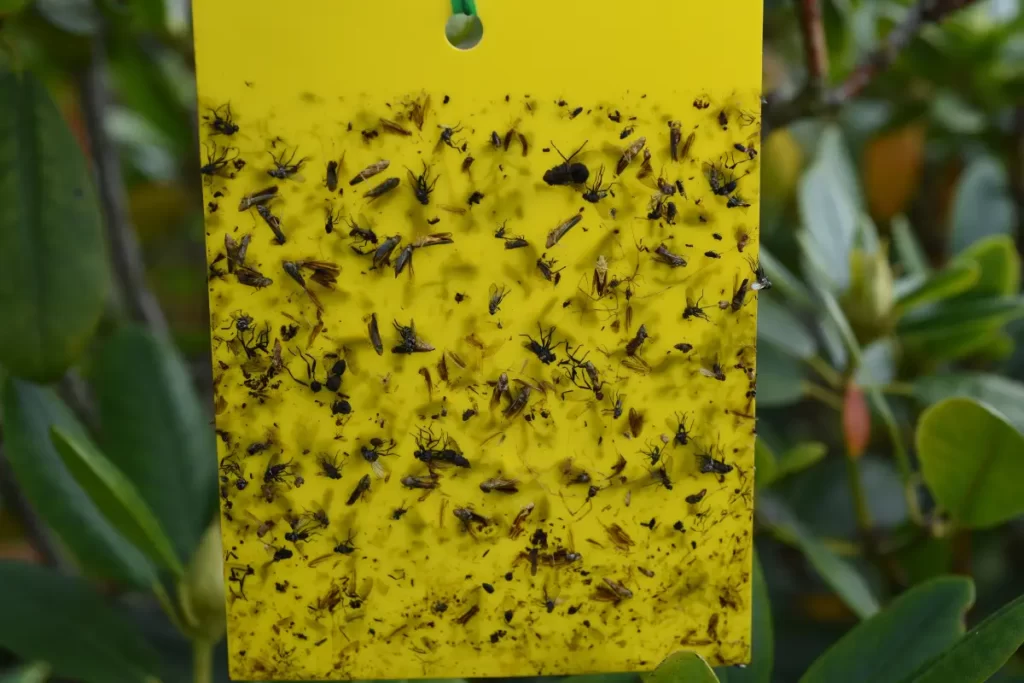
As wasps allure to sugary foods and sweets, you can also employ sugar traps to catch them. Making this improvised trap is very straightforward. You just need a 2-liter bottle, some duct tape, and sugar water. Now, by cutting off the bottle’s top portion, you may flip its neck around and reattach it to the body.
Put duct tape between the pieces and add sugar water to fill. The wasps will eventually perish if they can’t escape the bottle after falling inside.
Use Soap and Water
Another way to prevent wasps is to use a mixture of soap and water. To use this method, add two tablespoons of dish soap in a spray bottle, then shake it well to get a proper mixture. Now, you can splash this mixture directly on a wasp nest to kill them. This mixture clogs their respiratory system and kills them instantly.
Drown the Nest
As this method can cause danger, it is advisable to make sure you are not allergic to wasps and wear protective clothing, such as gloves, goggles, long sleeves, and pants, before attempting to use this method.
For this technique, you would have to approach the nest and wrap a cloth bag over it before removing the nest from its location. To prevent being stung by wasps throughout the operation, close the bag tightly. After that, the nest has to be submerged in water for disposal.
Baiting
Baiting is another wonderful way to prevent wasps. To prepare a bait, take a small amount of boric acid, sugar, and water. Now, mix them well and make small balls. After that place these balls in different places in your house. Wasps allure to the sugary smell of boric acid and will die slowly after consumption.
Use Smoke

Wasps use specific breathing spores to breathe that smoke can easily block. By starting a small fire beneath the nest, the wasp will begin to suffocate and eventually leave. For the nest to be fully emptied, it can take an hour or two. You can remove the nest if you’re certain there aren’t any more wasps within that are still alive.
Final Verdict
Wasps are one of the most nuisance and annoying household pests, and getting rid of them is always a challenging task. You can use different ant sprays to kill them. However, not all sprays are effective against wasps.
The best wasp spray that can kill wasps instantly is Raid wasp and Hornet spray. It can perish wasps by directly clogging their respiratory system. Moreover, you can also use natural remedies like some essential oils, baits, or traps to ward off wasps.
Above all, if you have a great wasp infestation, don’t try to remove them yourself, instead call a professional pest control company to deter them.
